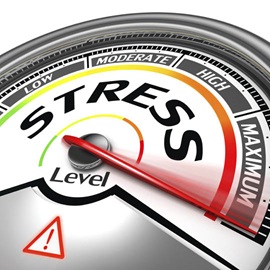
Change is a necessary part of life—but it can also be a most unwelcome part. Eventually, we all will encounter the death of a parent, child, or loved one; separation or divorce; illness or injury. But even happy changes—such as a new marriage, the birth of a child or grandchild, or living life after surviving a heart attack—can be stressful. It can be difficult to manage your health when you’re under stress, but St. Luke’s can help with information, programs, and experts in the field.
Coping With Stress
-
How Stressed Are You?
Sometimes we get so busy that it’s difficult to get perspective on how we feel. Understanding your stress level is the first step to making the positive changes that will pay off in healthier habits. With a little knowledge, you can prepare yourself for any curveball life throws at you.
-
Take the Sting Out of Job Loss
Many Americans spend more time at work than they do anywhere else. When you lose your job, it causes family and financial stress and can feel like losing part of your identity. Our counseling and behavioral health services can help you face your loss with courage, take a clear look at yourself with compassion, and help your transition to the next stage of your life.
-
Grieving Takes Time
Sometimes death is a blessing at the end of a long life well lived. Other times it’s shocking, tragic, and brutally unfair. But whether death is anticipated or sudden, it’s not easy, and can leave an emptiness in your life. Understanding the grieving process and sharing your feelings and loss with others can help you begin to heal. When you’re ready, St. Luke’s support groups will be there for you.
Find a grief support group near youSee more educational resourcesGrief is an intense emotion that is felt in response to the loss of someone close to us. People may have a variety of emotional and physical responses.
-
Get the Help You Need
Your mental health affects every other part of your life, and St. Luke’s is here to help you protect it. Our mental health service providers offer compassionate, skillful care to both adults and children affected by psychiatric instability. Our goal is to help you achieve a reprieve from your symptoms so you can stabilize and return to the care of your primary care physician.
Find a mental health provider -
Preventing Suicide
Idaho has the fifth highest suicide rate in the country. If you have thoughts of suicide, please seek help immediately.
Help is available by calling your doctor, going to the Emergency Department of your nearest hospital, or calling 911.
You can call or text 988 to reach the Idaho Crisis & Suicide Hotline, or start an online chat now.


